A player receiving the ball on the run busts the defensive line and powers past the flailing arms of a covering fullback. This compelling sight thrills watching rugby fans. As the runner drives forward, a defensive pattern is broken and chaos ensues, as defences scramble to take down the ball carrier. The line break is one of rugby’s most arresting sights that have made for some of the most memorable moments in rugby history and the players who repeatedly make them are rare and become treasures of the game.
Icons like Jonah Lomu, Bryan Habana and Shane Williams have made careers turning defences. Their place in rugby’s pantheon has been earned through displays of force, speed, skill and agility, qualities which blend together to form a truly destructive force. The modern game is not short of players looking to join these ranks. After the resumption of rugby this year, a number of ball carriers have hit the ground running for their clubs. And now, with the Autumn Internationals underway, these players will be turning their attention to continuing their run of form on the world stage.
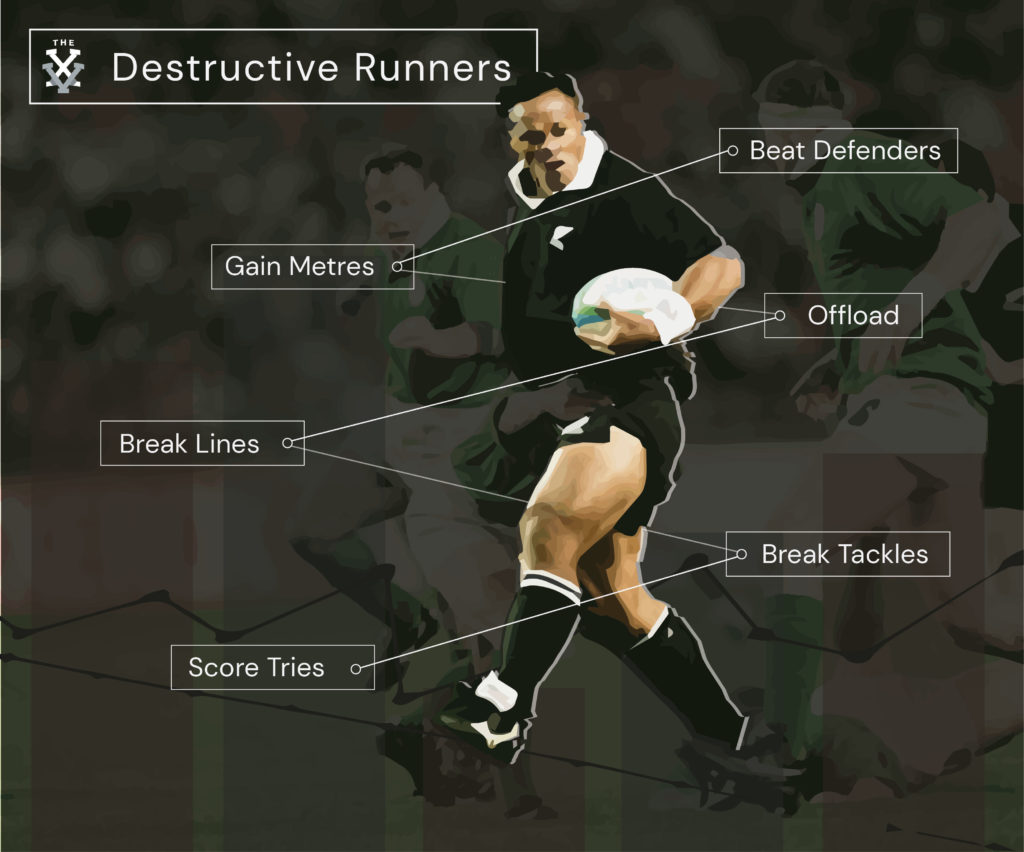
But the quality of international opposition poses a greater challenge. Defences are more robust, hard-hitting and quicker to realign. Breaking a Test line of defence is tough and busting tackles or beating defenders in one on one situations will require more guile and more endeavour. The qualities that make up the game’s most destructive runners will be put to the test.
In a series of visualisations, The XV picks out the Northern Hemisphere’s biggest running threats, crunching the numbers from Sports Analytics and using data from both the domestic and Test scene post the 2019 Rugby World Cup.
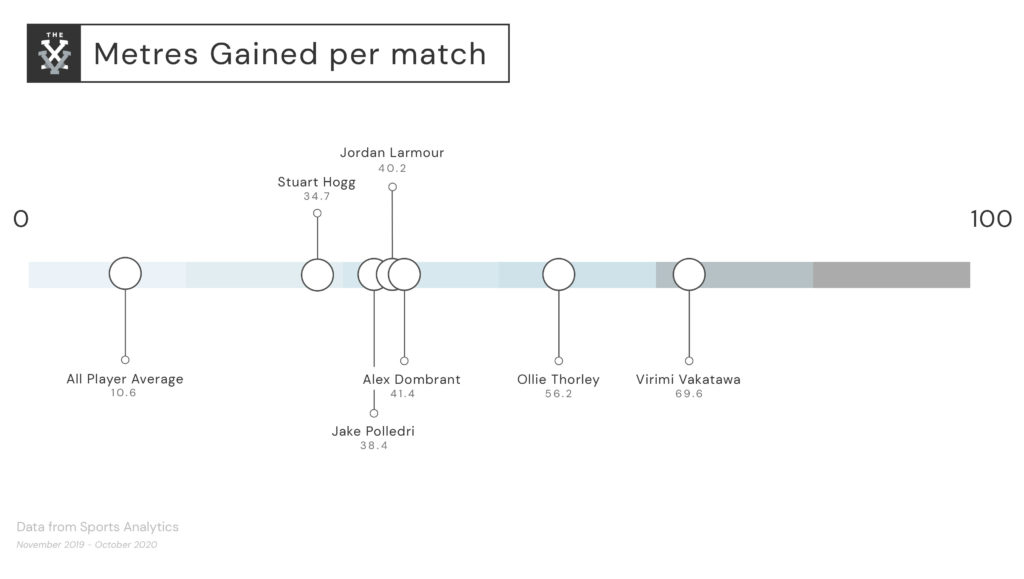
Virimi Vakatawa
Averaging 69 metres carried per game – when you’re not a full-back running from deep – is an incredible record, challenging some of rugby’s greats. A Sevens star, after shining at the 2019 Rugby World Cup, Virimi Vakatawa became one of the most sought-after players in world rugby and considering his attacking statistics, it was no surprise that Gloucester were rumoured to have put in a ‘colossal bid’ to bring him to Kingsholm. With an all-round attacking game that is crucial to both his club and country, the Fijian-born French centre has the ability to change games. After helping Racing 92 to reach the Champions Cup final, with a series of line breaks and deft offloads, Vakatawa’s ability to free his arms in the tackle was too much for Wales as he was part of a devastating backline that ran in five tries. He will be looking to exploit defensive weaknesses in the next month.
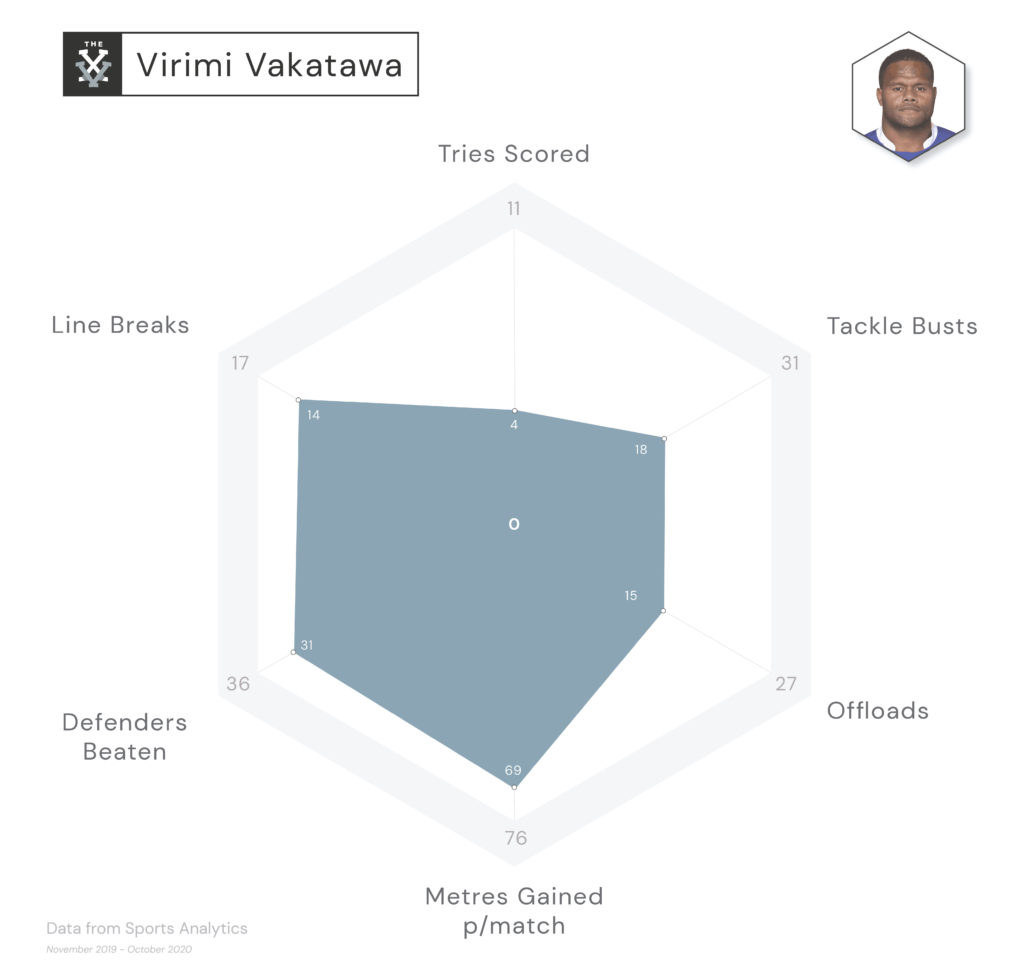
Alex Dombrandt
Alex Dombrandt will be hoping that Eddie Jones has taken stock of his recent run of form as he finally gets a chance to show his talents for England over the next month. Previously overlooked by Jones, 23-year-old Dombrandt has been influential for Harlequins and left supporters and journalists clamouring for his inclusion in the England squad. At 6ft 4in and nearly 19st, he is a naturally powerful ball carrier, the No 8 has a track record hitting gaps in midfield that centres would be proud of. He also has that precious commodity of being able to free his hands to keep the ball alive. Twenty-one tries in his first 44 appearances for Harlequins should be enough to make the present incumbent in the No 8 shirt, Billy Vunipola, take notice.
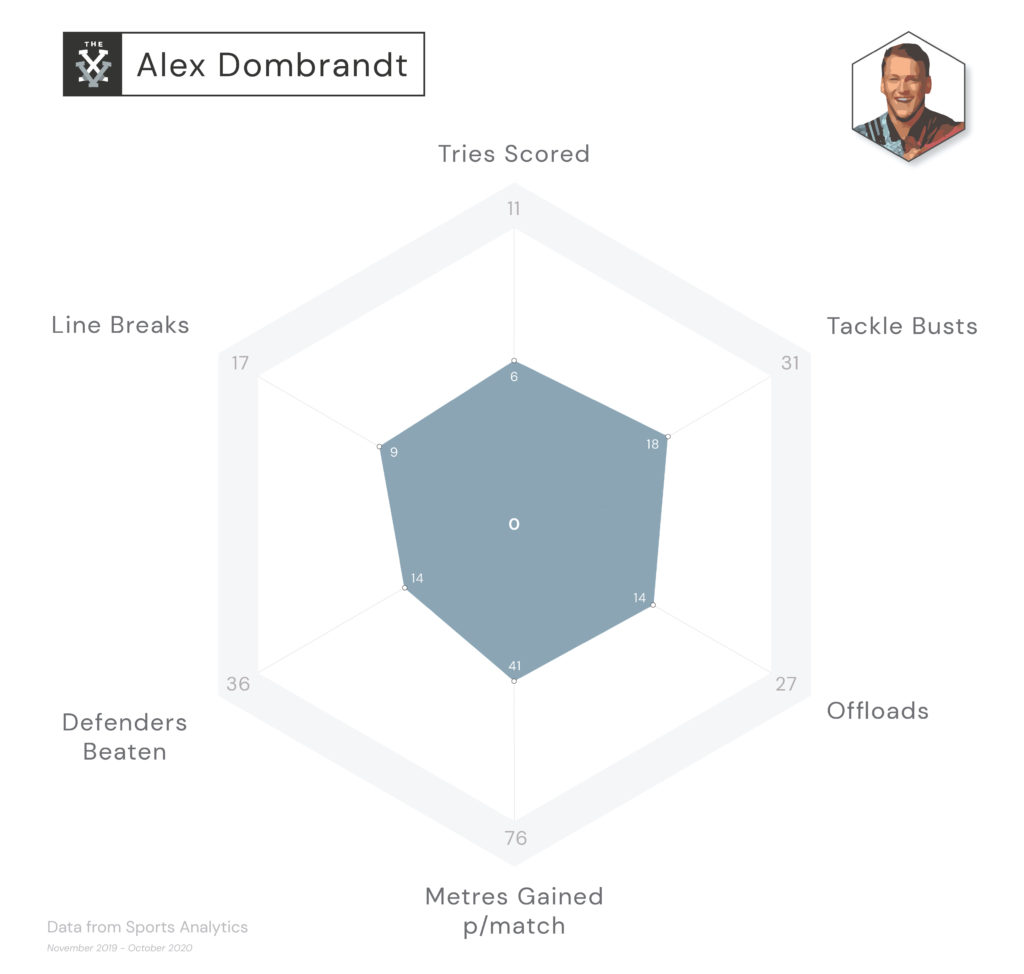
Jordan Larmour
Larmour was in dazzling form since the resumption of rugby and he will be distraught to miss out on Ireland’s Autumn schedule due to a shoulder injury he picked up playing for Leinster against Benetton last month. Indeed, since November last year, the Irish full-back, who can also play on the wing, has a strong record of breaking defensive lines and beat 36 defenders, the highest number recorded by any player in the world during the same period. Larmour’s natural blend of pace, quick feet and brilliance in the air rank alongside the best back-three players in the world. He will be sorely missed by Ireland and will hope to pick up where he left off for Ireland in the 2021 Six Nations.
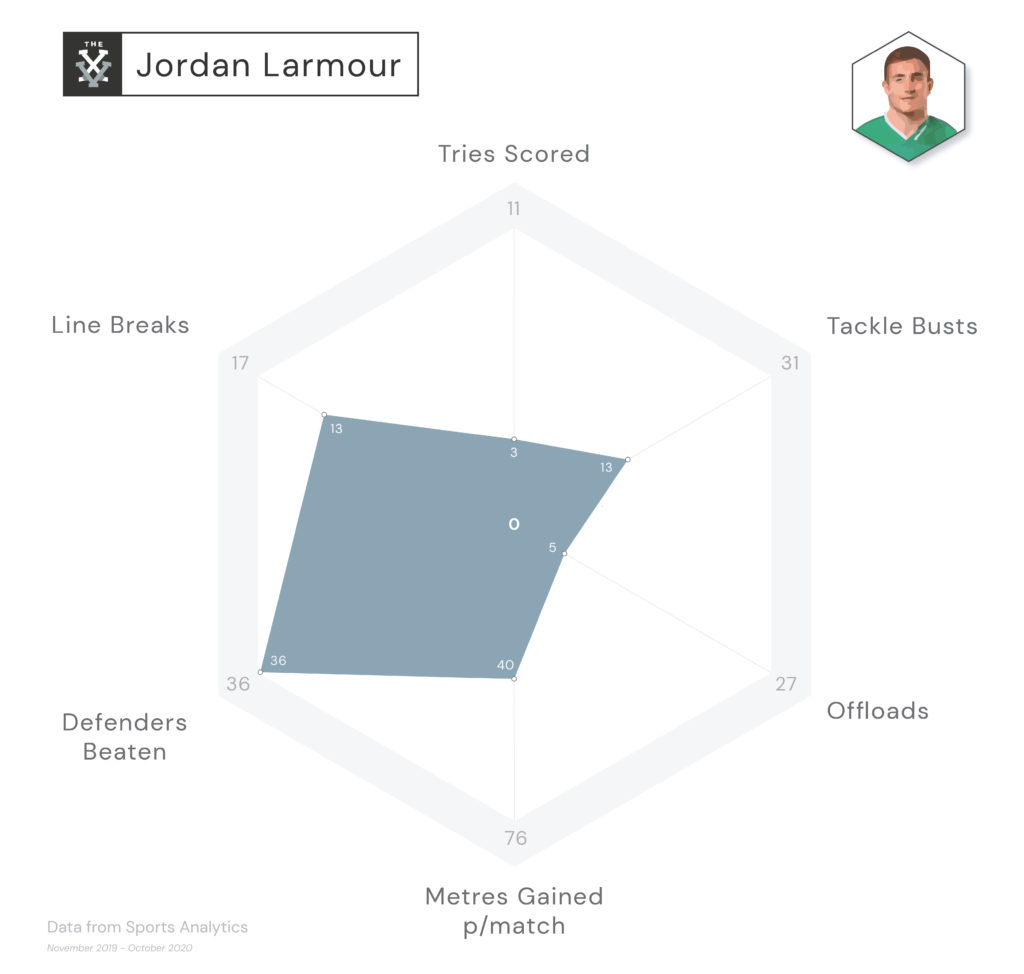
Ollie Thorley
The electric wing has recorded an enviable set of attacking statistics this year, setting him up to be a real danger for England in their upcoming calendar. Averaging 56 metres gained per match puts Thorley among the most influential ball carriers in the world. Not only this but England will be hoping that his ruthless knack for scoring important tries for Gloucester continues on the international stage. Still only 24 years old, Thorley has shown that he can break defensive lines with ease and he has the raw pace to run in tries from distance, as we saw against Leicester, in November 2018. A prolific try-scorer, he crossed the whitewash for four tries against the Tigers in August.
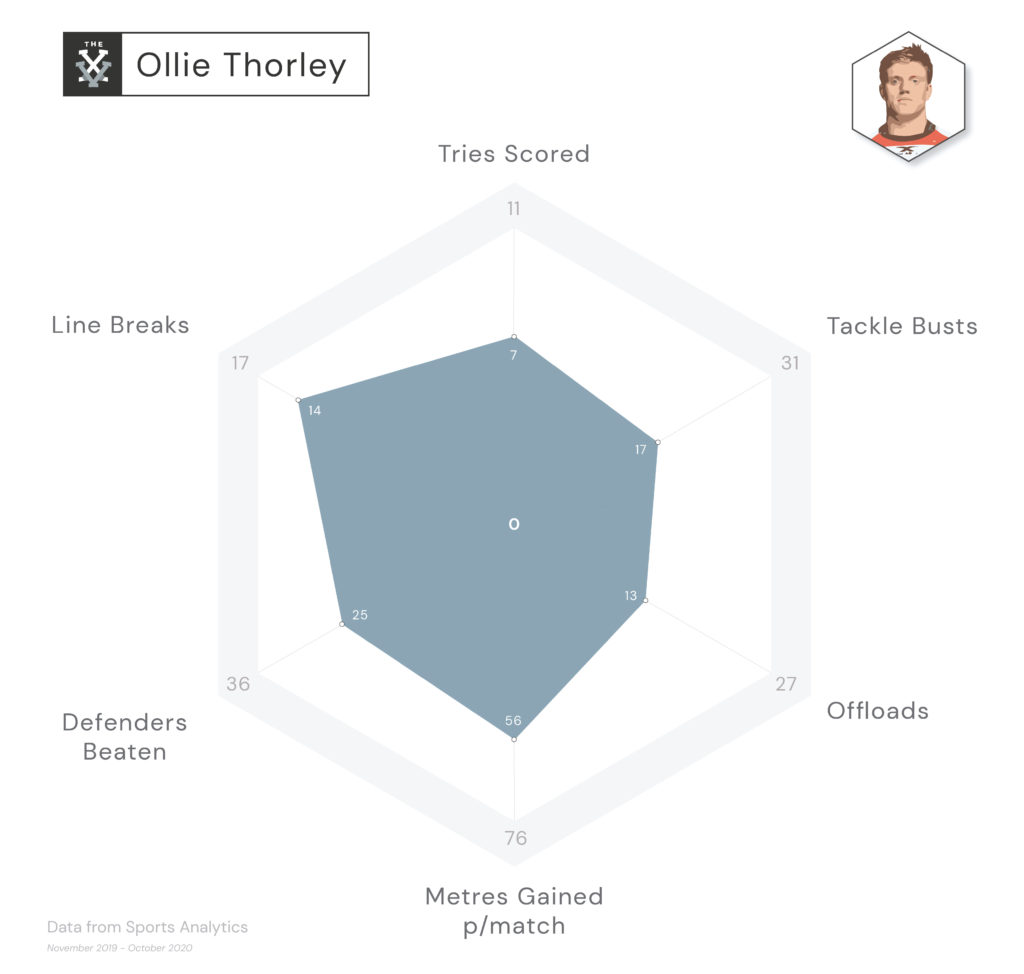
Jake Polledri
Described by David Flatman as a ‘destructive rhinoceros’, Polledri is an incredibly powerful carrier into contact with ‘freakish power’. Bristol-born, he has repeatedly shown rugby audiences how valuable he can be. Playing for Italy against Canada in the 2019 World Cup, he beat 14 defenders which was an all-time record for a forward. When driving with momentum, the 106kg flanker is arguably the most difficult player to stop in world rugby and has busted out from 31 tackles since the end of last year. His footwork and body position going into tackles is exemplary, as he hits weak shoulders and accelerates through gaps with a strong leg drive and powerful fend.
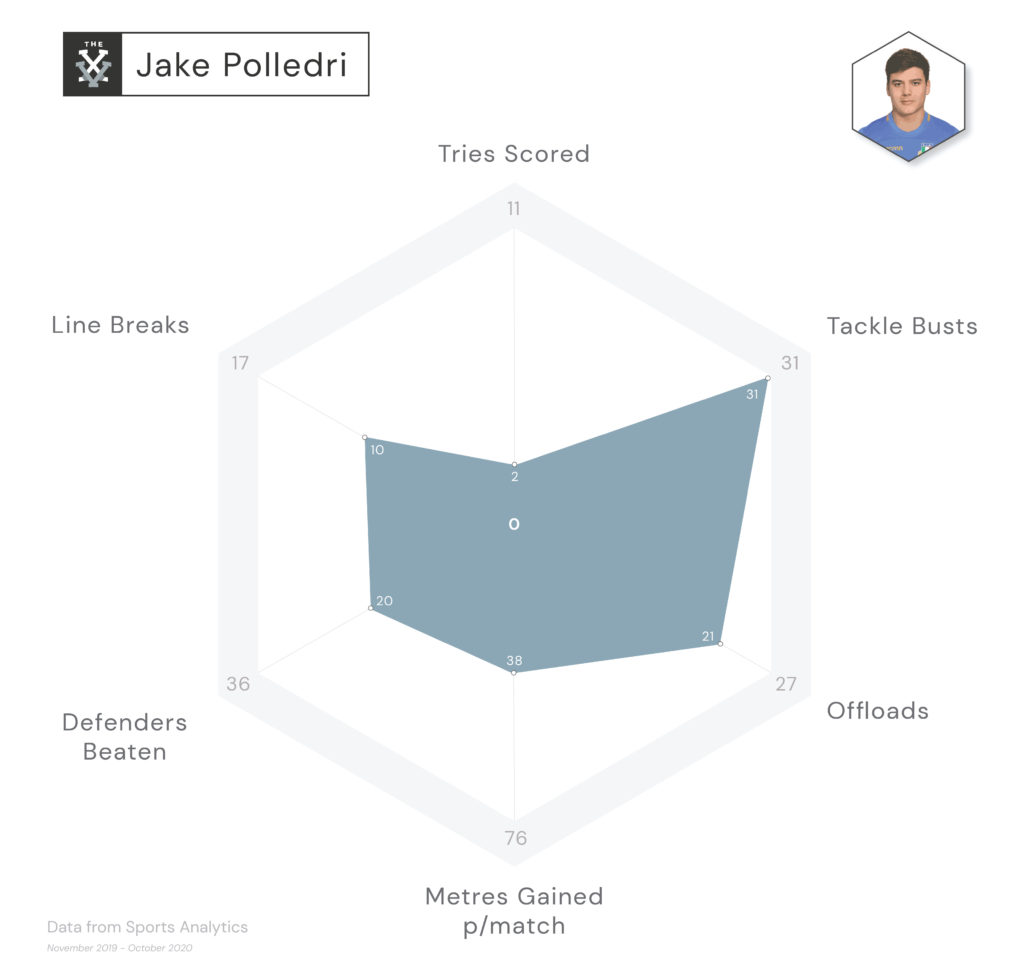
Stuart Hogg
The Six Nations Player Of The Tournament in both 2016 and 2017, Stuart Hogg has been Scotland’s most dangerous attacking force for some time. A consistently top performer, the full-back made a substantial contribution to Exeter Chiefs’ double-winning season and he has continued to waltz around defenders in the last 12 months as he has settled into life at Sandy Park. Using his pace and ability to find space with his cute running lines from deep, the Scot has beaten 30 defenders during this period and averages an impressive 46 metres gained per match. After his domestic travails, Hogg will be back as Scotland captain and looking to fell Wales this weekend, brimming with confidence.
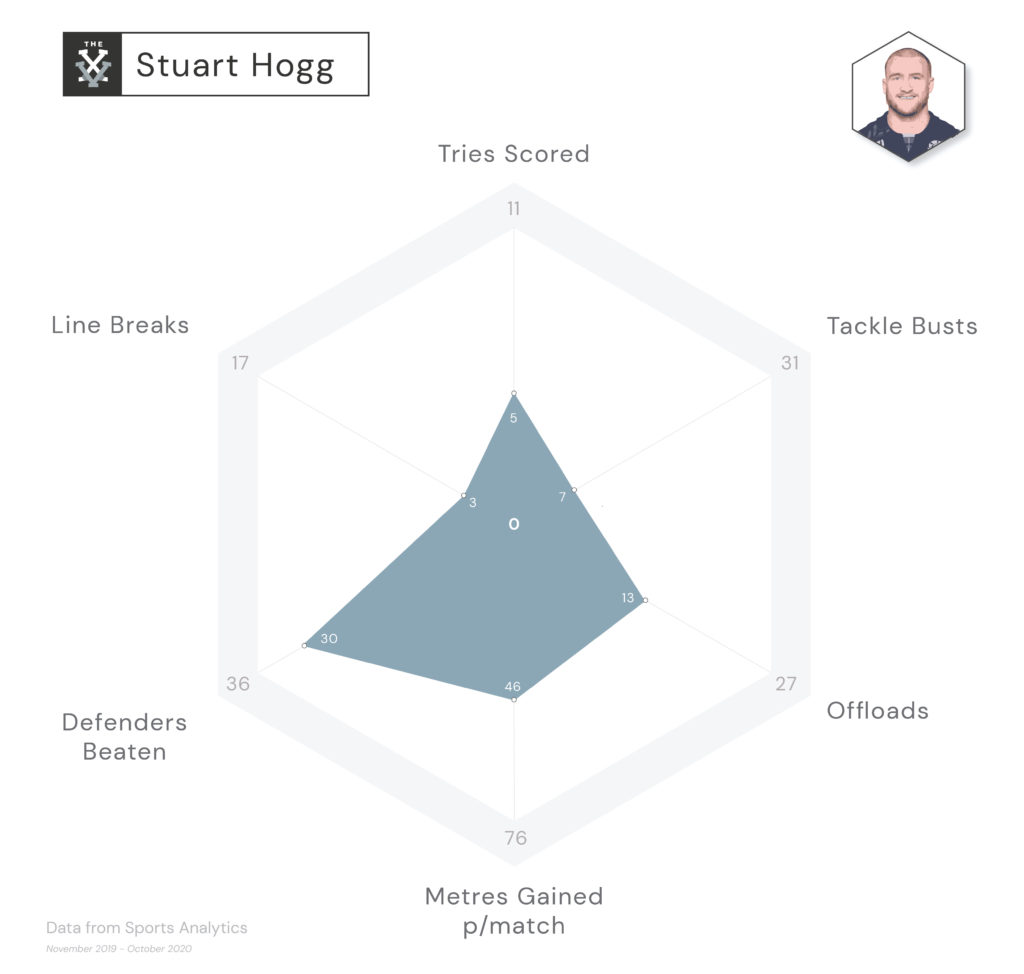
If you’ve enjoyed this article, please share it with friends or on social media. We rely solely on new subscribers to fund high-quality journalism and appreciate you sharing this so we can continue to grow, produce more quality content and support our writers.



Comments
Join free and tell us what you really think!
Sign up for free